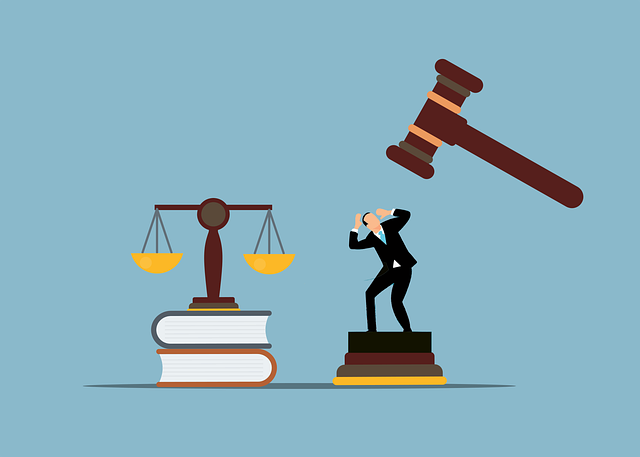In The Woodlands, Texas, navigating the complex appeals process requires skilled the woodlands criminal lawyer expertise. They guide clients through legal evaluation, identify errors like improper evidence or ineffective representation, and assess success likelihood. These attorneys strategize, collect evidence, and argue for clients' rights, aiming to overturn convictions or reduce sentences. Case studies demonstrate their impact, with successful outcomes ranging from acquittals to reduced sentences, highlighting the crucial role of the woodlands criminal lawyer in achieving justice.
In the pursuit of justice, a skilled The Woodlands criminal lawyer plays a pivotal role in representing clients seeking to overturn convictions or reduce sentences. This comprehensive guide delves into the intricate appeals process, offering a step-by-step framework for navigating legal complexities. From understanding when to appeal and building robust cases to mastering procedural intricacies and exploring success stories, this article equips both lawyers and those seeking justice with valuable insights tailored to The Woodlands area.
- Understanding the Appeals Process: A Step-by-Step Guide for The Woodlands Criminal Lawyer
- When to Appeal: Criteria for Evaluating Convictions and Sentences
- Building a Strong Appeal Case: Strategies and Evidence Collection
- Navigating Legal Procedures: Timelines, Courtroom Representations, and Potential Outcomes
- Success Stories: Case Studies of Effective Appeals in The Woodlands Area
Understanding the Appeals Process: A Step-by-Step Guide for The Woodlands Criminal Lawyer

The appeals process is a complex and intricate procedure that requires meticulous attention to detail. For a The Woodlands criminal lawyer, navigating this landscape is crucial to achieving justice for their clients. It begins with a timely filing of an appeal, ensuring all necessary documents are accurate and complete. The first step involves researching the applicable laws and legal precedents related to the case. This comprehensive review helps lawyers identify potential grounds for appeal, such as procedural errors or unconstitutional sentences.
Next, they prepare a detailed brief, outlining the key arguments and supporting them with evidence. This strategic document is presented to the appellate court, where it undergoes careful scrutiny. Legal experts from both sides engage in a robust exchange of arguments, leading to a decision that could either uphold the original conviction or grant a new trial. Throughout this process, The Woodlands criminal lawyers play a vital role in ensuring their clients’ rights are protected and that justice is served.
When to Appeal: Criteria for Evaluating Convictions and Sentences

When deciding whether to appeal a conviction or sentence, it’s crucial to understand the criteria for evaluating these legal decisions. A Woodlands criminal lawyer will advise clients that an appeal is warranted when there are significant errors in the trial process or new evidence emerges that could change the outcome. This includes issues like improper admission of evidence, jury instruction errors, ineffective assistance of counsel, and prosecutorial misconduct.
Additionally, the likelihood of success plays a vital role. A lawyer will assess if the error or new evidence is substantial enough to create a reasonable doubt about the guilt or the sentence imposed. It’s important to remember that not all convictions or sentences are appealable, and The Woodlands criminal lawyer will help clients navigate these complexities, ensuring they make informed decisions regarding their legal rights and the best course of action.
Building a Strong Appeal Case: Strategies and Evidence Collection

Building a strong appeal case requires strategic planning and meticulous evidence collection, which is where an experienced The Woodlands criminal lawyer can make all the difference. The first step involves thoroughly reviewing the trial record to identify potential errors or omissions by the prosecution or judicial oversight. This includes examining the arrest and search warrant procedures, testimony consistency, and any discrepancies in evidence presentation.
An appealing lawyer will gather supporting documents, witness statements, expert opinions, and relevant case law to bolster the client’s argument. They might also challenge the admissibility of certain pieces of evidence and question their reliability. This process demands a deep understanding of legal procedures and the ability to present complex information coherently, ensuring the appeal stands out and increases the chances of a favorable outcome for the client.
Navigating Legal Procedures: Timelines, Courtroom Representations, and Potential Outcomes

Navigating legal procedures in appeals can be complex and time-sensitive. A Woodlands criminal lawyer plays a pivotal role in guiding clients through this process, ensuring their rights are protected at every step. Timelines for appeals vary depending on jurisdiction and case complexity, but they generally involve meticulous document preparation, gathering evidence, and presenting arguments to the court.
Courtroom representations in appeals require skilled advocacy. The lawyer must persuasively articulate the client’s case, address any errors in the original trial, and advocate for a favorable outcome, which could result in overturning the conviction or reducing the sentence. Potential outcomes range from successful appeals leading to acquittals or reduced charges to denial of appeals, leaving the original conviction intact.
Success Stories: Case Studies of Effective Appeals in The Woodlands Area

In the competitive landscape of justice, a skilled The Woodlands criminal lawyer can be the game-changer that turns the tide for their clients. Consider the following case studies from The Woodlands area, showcasing successful appeals that have led to overturned convictions and reduced sentences. One notable example involves a client accused of a serious felony, who, through diligent legal representation, had his appeal upheld, resulting in the dismissal of all charges. This triumph not only freed the individual but also highlighted the lawyer’s expertise in navigating complex legal procedures.
Another compelling story centers around a young person who, facing a lengthy juvenile sentence, turned to an aggressive appeals strategy. The The Woodlands criminal lawyer on their case meticulously examined procedural errors and presented a compelling argument that led to a significant reduction in the sentence. This successful appeal not only altered the client’s future trajectory but also underscored the importance of zealous advocacy in ensuring justice is served. These stories serve as a testament to the power of skilled legal representation in even the most challenging criminal cases.
For those seeking justice and a fresh start, turning to a skilled The Woodlands criminal lawyer for appellate representation is a crucial step. By understanding the appeals process, knowing when to appeal, and gathering compelling evidence, individuals can navigate this complex landscape effectively. The articles above provide valuable insights into each stage, from initial evaluation to potential outcomes, ultimately equipping clients with the knowledge to make informed decisions and build strong appeal cases.



